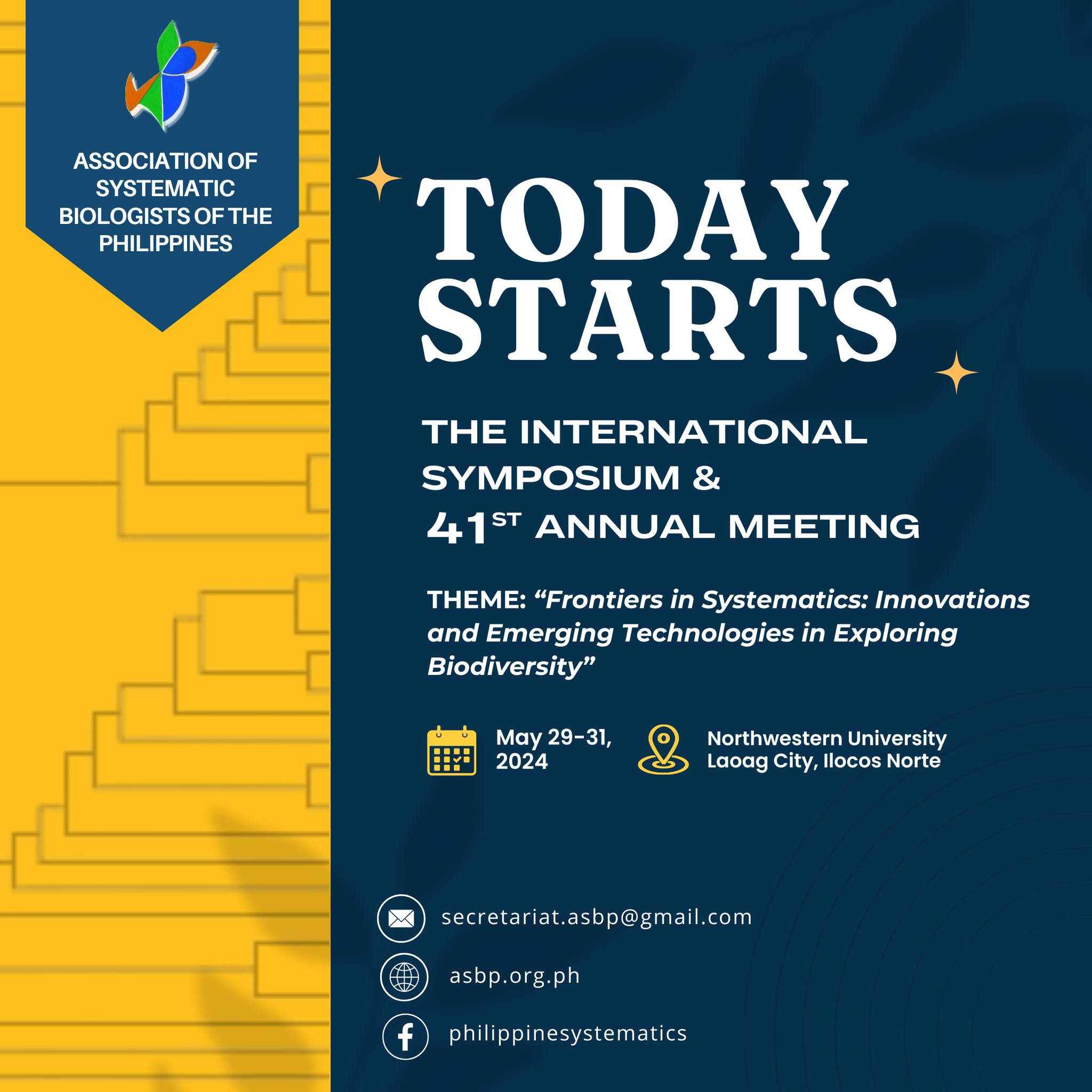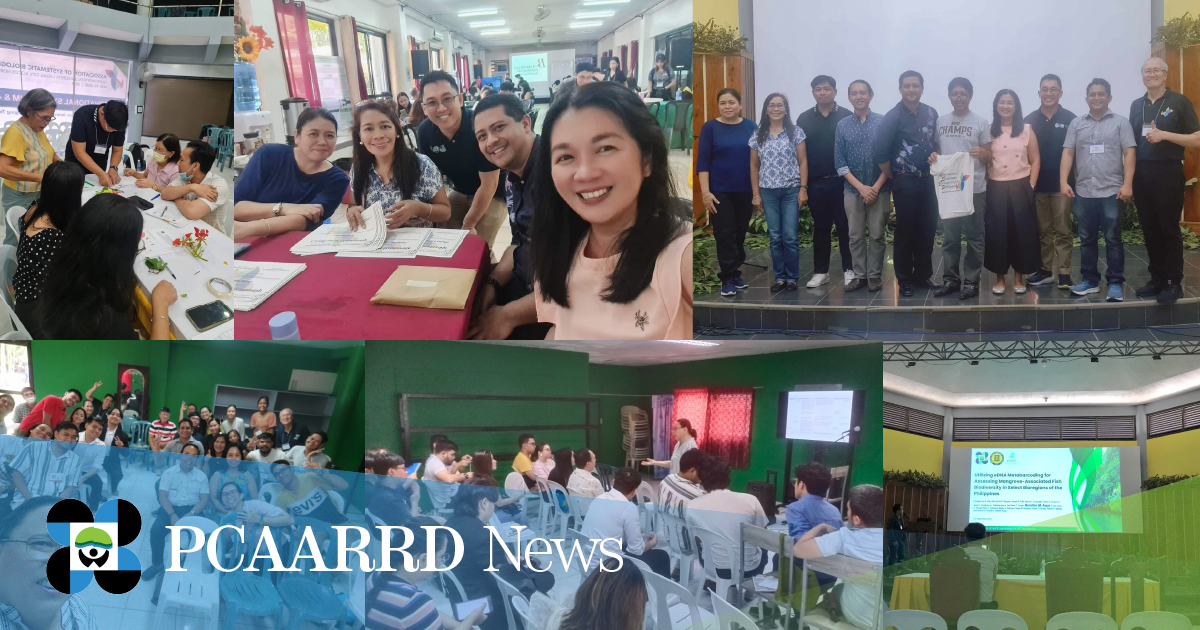
The DOST-PCAARRD and the Association of Systematic Biologists of the Philippines at the ASBP International Conference and 41st Annual Meeting, collaboration at its finest!
The Philippine Council for Agriculture, Aquatic and Natural Resources Research and Development of the Department of Science and Technology (DOST-PCAARRD) supported the Association of Systematic Biologists of the Philippines (ASBP) in organizing the ASBP International Symposium and 41st Annual Meeting on May 29-31, 2024 at the Northwestern University, Laoag City, Ilocos Norte. It was a significant event that brought together researchers, scientists, and experts to address the challenges facing biodiversity and ecological research.
With the theme, "Frontiers in Systematics: Innovations and Emerging Technologies in Exploring Biodiversity," the symposium delved into the critical need for participative efforts and interdisciplinary approaches, underscoring the declining biodiversity and its link to climate change.
One of the key issues highlighted during the conference, based on the report of the ASBP, was the declining interest in systematics among students, which poses a threat to the future of biodiversity research. This shortage of researchers and limited research output were addressed through discussions and initiatives aimed at inspiring and engaging the next generation of biodiversity experts.
With a focus on youth engagement, the symposium emphasized the importance of driving innovation and progress in the scientific community through collaborative efforts and skill-building programs for young systematists and young scientists. The event served as a platform for sharing advanced research, showcasing cutting-edge technologies such as Artificial Intelligence (AI), and other science disciplines that play crucial roles in exploring and conserving biodiversity.
As reported, the symposium was attended by approximately 170 participants from 27 key sectors. Each benefited from keynote and plenary lectures that offered valuable insights into ecological research and conservation efforts. Furthermore, over 50 scientific posters, a book of abstracts, and souvenir programs were produced, which served as valuable resources for further research and reference within the scientific community.
To further spark inspiration on knowledge and innovations in biodiversity, workshops aimed at empowering the next generation of scientists were conducted. Around 80 young participants’ curiosity were fueled and engaged in the mentoring. Additionally, 10 individuals will have an opportunity to level up their science communication skills through special mentoring after the conference, with the output to be shared through ASBP’s social media page and other platforms like FlipScience.
Moreover, the event was considered as a paramount step towards fostering collaborations and addressing the challenges faced in the field of biodiversity research. The emphasis on the role of advanced technologies and the importance of engaging and mentoring young scientists reflect a forward-thinking approach to ensuring a sustainable future for ecological research and conservation efforts. It did not only shed light on the significant link between biodiversity decline and climate change, but also inspired and engaged the next generation of biodiversity experts, thus shaping the future of ecological research and conservation.
Aligned with DOST-PCAARRD’s banner program on R&D, there is still a need to fund research that integrates multiple data types —i.e., molecular, morphological, ecological for a more holistic understanding of various fields relevant to the Council's mandate. Furthermore, the support to the ASBP International symposium is part of the Council’s initiative to contribute to protecting the country’s biodiversity through effective awareness interventions that will complement existing policies and programs at the local and national levels.
The DOST-PCAARRD has been providing augmentation funds to qualified professional/scientific and academic organizations that pursue activities in support of the Council’s advocacies, banner programs, and goals.

